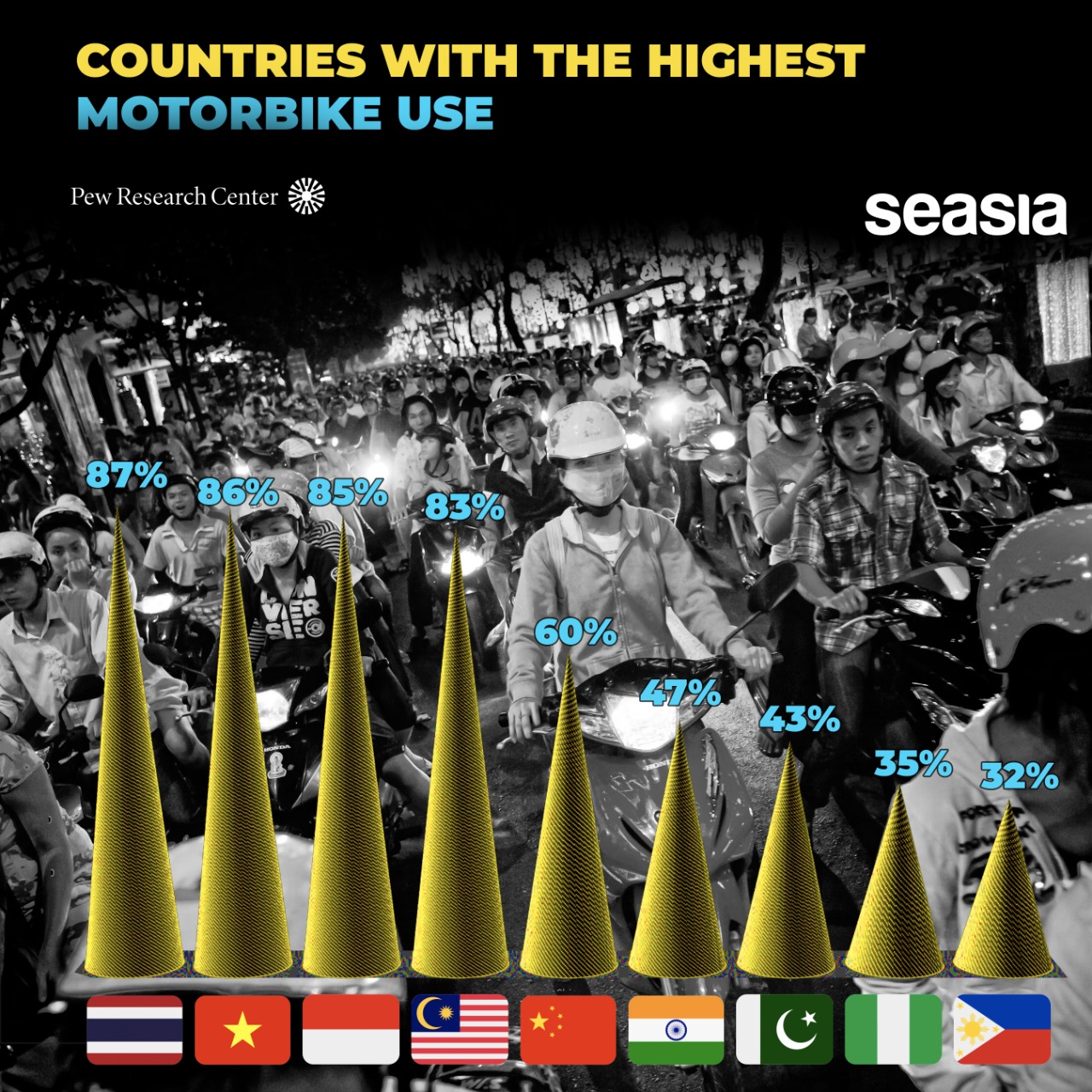Motorcycles are a relatively inexpensive and practical mode of mobility. Bikes can also get to places that aren't accessible by car. Two-wheelers have a lower environmental impact than four-wheelers since they exhaust less gas into the atmosphere.
Motorbikes are allowed to park on the sidewalk in nations and places where parking is a problem. Bikes are exempt from tolls and congestion charges in countries like the United Kingdom, making them an even more affordable mode of transportation.
Motorbikes are a convenient mode of transportation to numerous places in the lowest amount of time when traveling through congested roads, especially during peak hours. Motorcycles are the sole affordable mode of transportation for some people.
Motorbikes are primarily used in underdeveloped countries because to their relatively low cost, whilst in affluent countries, they are primarily luxury commodities used primarily for recreation and as a sign of personal identity.
The Asia Pacific and other Asian regions, such as Southern and Eastern Asia, account for 58 percent of all motorcycles in the world. The countries having the most motorcycle users are listed below.
In Southeast Asia, the motorbike taxi or ride-hailing business has become an important element of society, and consumers are becoming increasingly reliant on such services for their daily activities. It demonstrates that motorcycles are a part of Southeast Asia's culture.

Thailand
Thailand is known as "the land of 100 million scooters" for a reason. According to the Pew Research Center, at least one motorcycle is owned by 87 percent of households in the country. There are at least 15 million bikes in the country, which has 18 million households. According to the BBC, the country has up to 20 million registered motorcycles and another million unregistered motorcycles.
Vietnam
In Vietnam, which has a population of nearly 90 million people, the motorcycle is the most prevalent mode of transportation. In the country, there are around 45 million bicycles, with 86 percent of households owning at least one. Despite reports of a saturated market, two-wheeler sales continue to rise. The majority of the roads in Hanoi, the capital city, have been taken over by around 5 million motorcycles. Because of the high number of bikes on the road and the resulting traffic, the Vietnamese government intends to reduce the number of motorcycles on the road.
Indonesia
Every day, around 15 million motorcycles ride through the city, compared to only 5 million cars. In general, Indonesia is the world's largest market for motorcycles and scooters. According to an AISI survey, there are around 80 million bicycles in the country. Approximately 85% of families own at least one motorcycle, which is used as the primary mode of transportation for all family members.
Malaysia
Malaysia has roughly 7 million homes, of which 5.8 million own motorcycles, with a population of 32 million people. In total, there are over 13 million motorcycles in the country, which is nearly equal to the number of cars. Motorcyclists, on the other hand, make up the majority of road users. As a result, cyclists account for the majority of road fatalities in the country. Motorbikes are a practical mode of transportation in Malaysia, despite their perils.
Source: worldatlas.com, asiaone.com


















